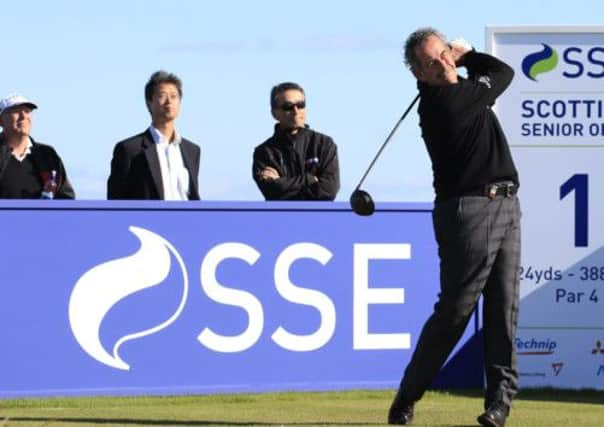Ryder Cup captains to be selected by five-man panel


Instead of being picked by the European Tour’s tournament players’ committee, future Ryder Cup captains will be selected by a new five-man panel that will consist of the last three players to hold the post, the Tour’s chief executive and one representative of the committee.
For the 2016 match at Hazeltine, therefore, the decision will be made by Colin Montgomerie, Jose Maria Olazabal and Paul McGinley in tandem with George O’Grady and, unless he’s a candidate himself, probably Thomas Bjorn as the committee chairman. The change follows frenzied speculation and political in-fighting surrounding the appointment for next year’s match at Gleneagles, which ended in the right man, McGinley, being selected but left O’Grady, for one, disappointed with some of the shenanigans.
Advertisement
Hide AdAdvertisement
Hide AdIt also prevents a scenario whereby a non-European is involved in such an important appointment, as was the case when Chilean Felipe Aguilar, a member of the tournament committee, sat in on the decision-making meeting in Abu Dhabi in January.
“This decision has come after a series of tournament committee meetings and, after much reflection, it was felt that this change would see the most suitable candidate being invited to follow on from Paul McGinley at Hazeltine,” said Europe’s Ryder Cup director, Richard Hills.
“The job of Ryder Cup captain is an expanding and demanding role, and I think this decision perfectly focuses the three vital ingredients required in any selection process.
“These are: the immediate experience of the three past captains which brings six years of vital knowledge to the table; the office of the chief executive of the European Tour, which outlines the wide-ranging political and practical requirements; and the tournament committee representative who will, having canvassed his colleagues on Tour, bring the feelings and wishes of the players to the discussion.”
The change has been welcomed by Sam Torrance, the 2002 winning captain and set for a dramatic return to the event in Perthshire as one of McGinley’s assistants, after completing his first round yesterday in the SSE Scottish Seniors Open at Fairmont St Andrews.
“It wasn’t great what went on this time,” he declared. “I suggested to them that what should happen is a six-man committee – the last five Ryder Cup captains and the next one, then one drops off. So the last three is brilliant.”
Added the man who played a pivotal part in the balance of power shifting in the event after holing the winning putt at The Belfry in 1985: “We’ve almost got it right so far, but I think this should be a decision by former captains.”
Englishman Jamie Spence, the tournament committee chairman before Bjorn and the European Tour’s player liaison officer, said he’d been disappointed to see the selection process become “contentious” as the Ryder Cup has become “bigger and bigger”.
Advertisement
Hide AdAdvertisement
Hide AdAlso speaking at St Andrews, he said: “By hook or by crook, I think we have managed to name the right captains, but it’s not fair on the tournament committee who are playing golf to be harangued, especially Thomas. To have three captains and the chief executive is the best way. It can become personal and it is a shame.”
He singled out Sandy Lyle as someone who might have benefitted if such a panel had been in place earlier, the two-times major winner being the only one out of European golf’s so-called “Big Five” to have missed out on the European captaincy.
“Sandy has been incredibly unlucky not to be a Ryder Cup captain in his time,” added Spence. “When he was the age to be captain he wasn’t really around the boys. In the future, someone is going to miss out too. He started wanting it the last few times, but none of the boys know him.”
This will be the third process used to select the captain since players from Continental Europe joined the fold for the 1979 contest.
From then until 1997, when the late Seve Ballesteros led Europe to victory at Valderrama, the appointment was made by the Ryder Cup committee, who re-appointed John Jacobs in 1981, Tony Jacklin in 1983, 1985, 1987 and 1989, and Bernard Gallacher in 1991, 1993 and 1995.
In 1999, Mark James was the first captain to be nominated by the tournament committee and ratified by the Ryder Cup Board, a process which went on to select Torrance (2002), Bernhard Langer (2004), Ian Woosnam (2006), Nick Faldo (2008), Montgomerie (2010), Olazábal (2012) and McGinley (2014).
“With the expertise of three Ryder Cup captains, as well as representation from the European Tour’s tournament committee and chief executive, we believe the new process to select Europe’s captain is the best way forward,” said Sandy Jones, chief executive of the Professional Golfers’ Association.
“We hope this new process will enable the European Team to continue the success they have enjoyed in recent years.”